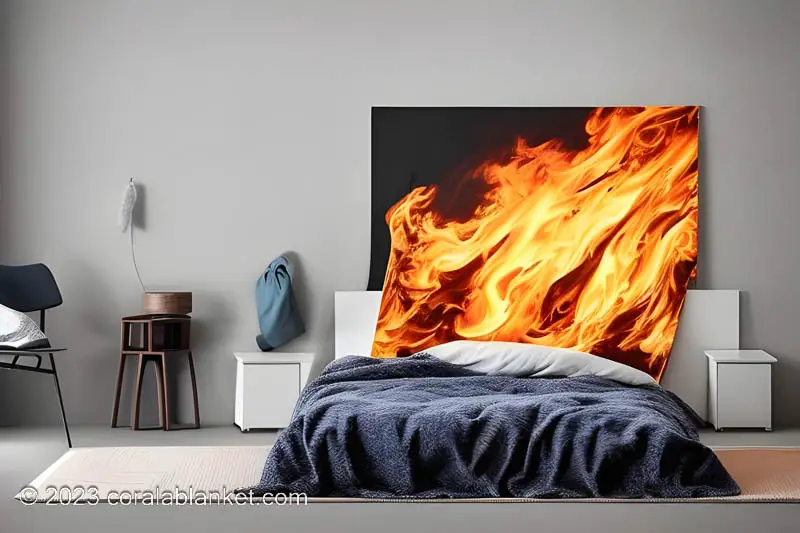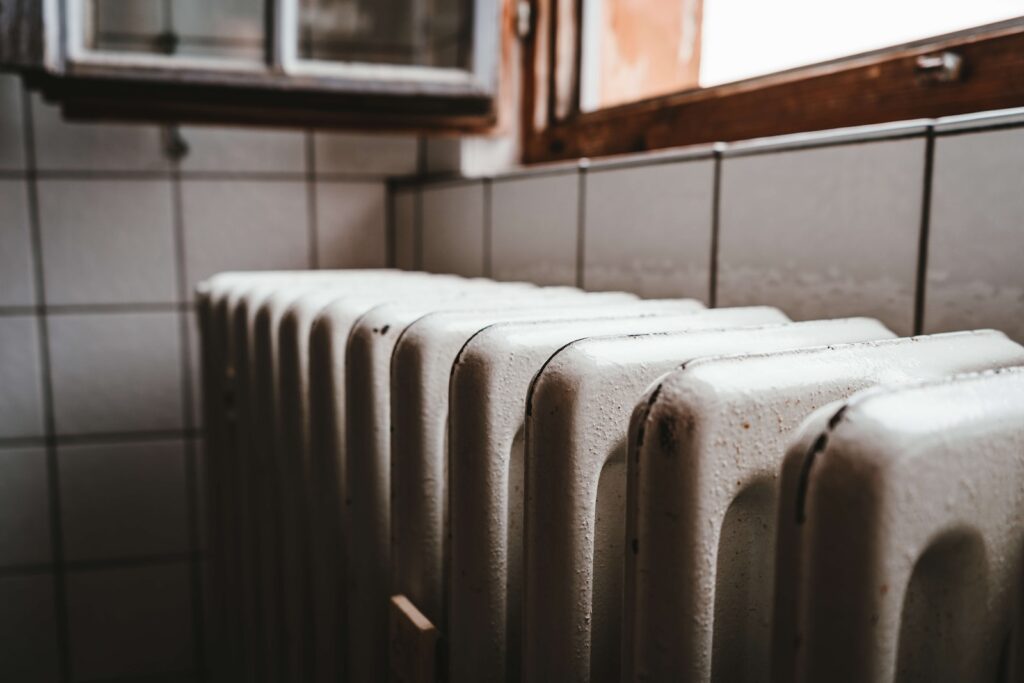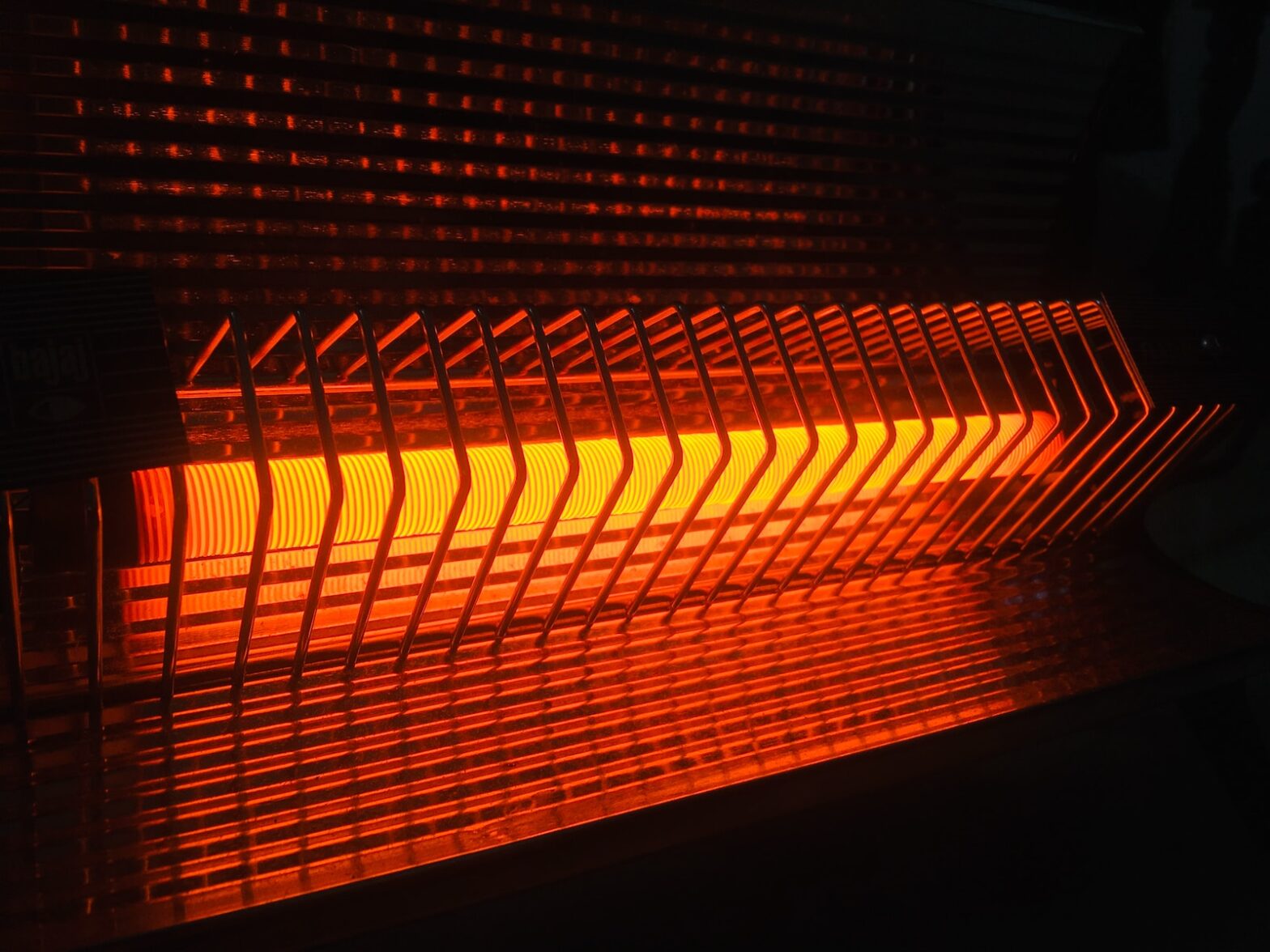Table of Contents
Is It Safe to Sleep with a Heater on?
We all know how important it is to stay warm in the winter, but is it safe to sleep with a heater on?
The answer is yes, but there are a few things you should keep in mind to make sure you stay safe.
Here are a few tips:
Can you sleep with a space heater on?
The short answer is “No”. Portable heaters are a potential safety risk and should be turned off when you are asleep. The National Fire Protection Safety Association reports that space heaters are a major cause of home fires related to heating, and are responsible for 43 percent of such fires in the United States. In addition, they are largely responsible for 85 percent of the deaths associated with heating fires.
Furthermore, using a vent-free propane space heater while sleeping puts individuals in danger of carbon monoxide (CO) poisoning. Carbon monoxide is odorless, so one can take in a dangerous and even lethal amount of it before a CO detector near the bedroom goes off. This can lead to injury or death.

Not only is it unsafe to sleep with a space heater, it is also not an efficient way to keep warm, and won’t save money. As such, it is highly recommended to turn off space heaters before going to sleep.
What are the risks of sleeping with a heater on?
1. Risk of Carbon Monoxide Poisoning
The risk of carbon monoxide poisoning when sleeping with a heater is extremely high. The increased levels of Carbon Monoxide inside the room are associated with a high risk of asphyxia or sleep death, as it obstructs the blood supply to the brain, hampers brain functions, and may result in brain hemorrhage or even death. If a vent-free propane space heater is used while sleeping, it increases the risk of CO poisoning, as the gas is odorless and colorless, and can easily go undetected.
2. Risk of Fire
Fires can occur if a heater is placed too close to combustible items such as furniture, mattresses, bedding, clothing, curtains, and area rugs. Additionally, power cords can be easily damaged if furniture is placed on top of them, creating a potential fire hazard. To reduce the risk make sure to keep pillows, bedding, papers, weighted blankets, and curtains away from the front of the heater. Do not use your heater with a power strip or extension cord and keep your heater away from children or pets.

3. Risk of Overheating
When using a space heater, it’s important to ensure the room is properly ventilated, as prolonged excessive heat can negatively affect the quality of indoor air and may lead to respiratory issues and other diseases. When purchasing an electric space heater, look for heaters with automatic shut-off features to reduce the risk of overheating.
4. Risk of Electrical Burns
Using a heater while sleeping can result in electrical burns due to the potential risks of electrocution. Therefore, it is important to keep electric space heaters far away from any sources of water and to never plug any other electrical device into the same outlet as the heater, as this could result in overheating. Additionally, it is essential to string out power cords on top of area rugs and carpeting, as placing anything on top of the cord could damage it and create a fire hazard.
5. Risk of Suffocation
When sleeping with a heater, the risk of suffocation is very high. When the carbon monoxide levels inside the room rise due to the heat produced by the heater, it can obstruct the oxygen supply to the brain and lead to asphyxia or sleep death. The signs of increased levels of CO in the room are dizziness, headache, abdominal pain, sleeplessness, nausea, and anxiety which can lead to serious health consequences in the long run.
6. Risk of Sleep Disturbance
The risks of sleep disturbance when sleeping with a heater include fatigue, discomfort, restlessness, decreased time spent in NREM sleep, lack of bodily recovery, poorer memory consolidation, difficulty in learning, and respiratory issues. Prolonged exposure to excessive heat can also affect the quality of indoor air, triggering allergies, asthma, and other serious diseases. Additionally, high temperatures can interfere with the body’s thermoregulation process, resulting in a higher body temperature when going to bed, making it harder to fall asleep. This can potentially knock the circadian rhythms out of sync, diminishing the quality of sleep.
7. Potential for Development of Allergies
What are the risks of developing allergies when sleeping with a heater?
- Reduced air quality – Prolonged exposure to heat can significantly reduce the air quality of your bedroom and lead to respiratory issues like asthma and trigger allergies.
- Skin irritation – Sleeping with the heater on all night can cause your skin to dry out due to a lack of moisture, leading to skin irritation, flaky skin, and itchiness.
- Weakened immune system – The mucus in the nose that helps trap bacteria can easily dry up in a hot room, weakening our immune system and making us more prone to infections, particularly for babies. Here is how to boost your immune system.
The best way to keep your room warm while you sleep
Step 1: Choose a space heater
When looking for a space heater to keep warm in the winter, there are several different types of space heaters to choose from, each with their own advantages and disadvantages. Oil-filled, ceramic, infrared, and electric space heaters are the most common types of space heaters, with electric space heaters being the most widely used.
- Oil-filled space heaters are filled with thermostatically controlled oil and typically provide the most efficient and cost-effective heating with minimal noise.
- Ceramic space heaters use ceramic plates which heat up quickly and are usually the safest choice for households with children or pets.
- Infrared space heaters provide direct, focused heat and can be used to heat up an individual room or area.
- Electric space heaters are the most widely available and are typically the most affordable, but they do not provide as much heating efficiency as the other types of space heaters.
When choosing the best space heater for your room, it is important to look for one with safety features such as tip-over protection, overheat protection, a built-in thermostat or timer, and avoid electric space heaters with hot coils or vented propane space heaters. It is also important to make sure the space heater is certified by an organization such as Underwriters Laboratories (UL) or Intertek’s ETL Mark.
Step 2: Make sure it is rated for indoor use
It is important to make sure that a heater is rated for indoor use because this will help ensure that it meets safety standards and will help to prevent potential fire hazards. Space heaters should never be placed on uneven surfaces, carpets, or with extension cords or surge protectors. In addition, be aware of children and pets and read safety precautions included with the packaging before using the product. By ensuring that a heater is rated for indoor use, you can rest assured that you are using the right product in a safe manner.
Step 3: Get a carbon monoxide detector
It is essential to get a carbon monoxide detector for your room because carbon monoxide is a toxic gas that cannot be smelled or tasted, but it is produced as a byproduct when using a propane or oil heater (and when you sleep in your car). It can lead to serious health problems, such as poisoning, dizziness, headaches, chest pain, heart problems, sleeplessness, nausea, and anxiety, and can even be fatal in high concentrations. Having a detector can alert you in time to shut off the heater, and if necessary, evacuate the room and call for help. It is also important to regularly check, test and maintain your smoke detectors to ensure that they are in proper working order and to avoid potential fires caused by the heater.
Step 4: Keep items off the heater
- Always keep the temperature low to moderate when using a space heater.
- Place the heater at least three-four feet away from the bed, and make sure there is no furniture near the heater.
- Place the heater on a non-inflammable and hard surface, such as the floor, and make sure to never put it on top of furniture.
- Keep combustible materials at least three feet away from the front of the heater and away from the sides and rear. This includes rugs, clothing, bedding, papers, and curtains.
- Unplug the heater whenever you leave the room or the house.
- When sleeping, always turn off the space heater and keep it away from children and pets.
Step 6: Ventilate room
Make sure to keep your room properly ventilated while using a propane heater. This means you should crack a window open a bit to allow fresh air to circulate. (Sleeping with open windows also has a spiritual meaning). Keep the temperature low to moderate.
Is It Safe to Leave Whitening Strips On Overnight?
The safety of leaving whitening strips on overnight is questionable. While some argue it can enhance results, dental professionals advise against it. Extended exposure may lead to tooth sensitivity and gum irritation. Following the instructions and limiting usage is crucial to avoid any potential harm from leaving whitening strips on overnight.
FAQ
What are the best ways to keep a room warm?
Staying warm during the winter months can be a challenge, especially if your home is not equipped with central heating. A space heater can be a great way to keep a room warm without the risk of leaving it on overnight. Here are some steps to help you keep your room warm using a space heater:
- Choose the right type of space heater. Oil-filled, ceramic, and infrared space heaters are the safest options for overnight use. Ensure your heater has tip-over and overheat protection and check product reviews to ensure overheating is not an issue.
- Do NOT sleep with a heating pad, ever.
- Set the temperature at a low to moderate level to avoid overheating.
- Place your heater at least three to four feet away from the bed. Do not place it on wood flooring or carpets, as this could be a fire hazard.
- Before going to bed, make sure the space heater is off and unplugged.
- Get flannel sheets and thick comforters to help keep your body heat close. Wear flannel or fleece nightclothes, along with socks, for extra warmth.
- When the sun goes down, close the curtains or blinds to keep the daytime heating in the bedroom.
- Eliminate drafts that chill the room by using insulating curtains, weatherstripping, caulk, door sweeps, and expanding foam. Redesign your bedroom for better sleep when needed.
- Use the space heater in the evening to warm the room before bedtime and turn it off when it’s time to sleep.
Is it safe to sleep with a heater on?
From the reference given above, it would seem like the answer is no. Space heaters and gas heaters are the two types of heaters that pose the biggest threat when it comes to sleeping with them on.
- Space heaters can become incredibly hot and cause fires if left too close to something combustible.
- Gas heaters are also a no-go as they can produce potentially lethal amounts of carbon monoxide.
Even with central heating, there is still a risk of fire or carbon monoxide poisoning if the heater is not serviced regularly and in good working order. The safest option is to turn on the heating for a few hours before bedtime and then turn it off to ensure the highest amount of safety.
What are the safety considerations when using a space heater?
When using a space heater, it’s important to consider safety first. Here is an expanded list of safety considerations to keep in mind:
- Install smoke alarms and carbon monoxide alarms in your home, and check batteries regularly.
- Place the heater on a smooth, flat surface such as a ceramic tile or flat stone.
- Check the wiring of the heater and do not use if it is frayed.
- If an extension cord is necessary, always use the shortest possible heavy-duty cord that is 14-gauge wire or larger.
- If you own pets, make sure they are not chewing on the wiring of the space heater.
- Do not nap while the heater is on.
- Pay attention to safety recalls and replace the heater if there is a recall associated with it.
- Do not use space heaters as the primary heat source in your home.
- Keep the space heater dust-free and away from clutter.
- Choose a space heater with safety features such as a timer, overheat sensors, and tip-over shutoffs.
- Never use a broken or old space heater.
- Use a grounded outlet when plugging in the space heater.
What kind of heater is safest to use?
When it comes to using a heater to keep warm during the cold winter months, the safest option is to use a modern space heater with certified safety features. Look for models with tip-over protection, adjustable thermostat, and a shutoff timer. Infrared heaters, ceramic heaters, and oil heaters are some of the safest options, as they all have features that minimize the risk of an electrical fire. Infrared heaters heat up quickly and the heat lasts a long time, ceramic heaters stay cool to the touch, and oil heaters usually have auto shutoff features that turn the unit off if it overheats or tips over.
How can I reduce the risk of carbon monoxide poisoning?
Step 1: Use a Carbon Monoxide Detector. Install a carbon monoxide detector in the room where you will be using a space heater. This can provide an early warning system if the level of CO rises too high.
Step 2: Ensure Proper Ventilation. Whenever you use a space heater, make sure that the room is properly ventilated. This will help to reduce the buildup of CO.
Step 3: Avoid Sleeping with Your Heater On. If at all possible, avoid using your heater while you are sleeping. This is due to the risk of CO poisoning that can occur as a result.
Step 4: Maintain the Heater. Have the heater inspected and serviced regularly by a qualified technician to keep it in good working order and to reduce the risk of carbon monoxide poisoning.
What happens when you sleep with your heater on?
When you sleep with the heater on, the air in your room can become very dry. This dries out your nasal passages, leading to nosebleeds. It can also cause irritation to your eyes and throat, and can make you more prone to infections.
Another major risk associated with space heaters is that they can start a fire. Keep your heater away from combustible items such as bedding, clothing, curtains, or furniture. Space heaters can also malfunction or have frayed wiring, which can cause them to spontaneously ignite.
By the way, using a space heater to keep your room warm will not save you money in the long run. The National Fire Protection Association states that space heaters are a major cause of home fires and associated deaths.
In conclusion, sleeping with the heater on can be dangerous, and should be avoided. If you must use a space heater, make sure it is in a safe location, away from combustible materials. Additionally, be sure to never use a propane or natural gas heater in an enclosed space.
Are electric or oil heaters safer to use?
Electric and oil heaters both offer their own unique benefits when it comes to safe heating, but which one is safer to use? If you want an efficient, silent, and safe heating option for your home, then an oil-filled radiator-style heater is the best choice.

These heaters provide steady, safe heat for long periods due to their construction and design, with our editors recommending them as the best way to heat an entire room. Their automatic shutoff, timer, and tip-over protection features further ensure their safety.
For comparison, infrared heaters use radiant quartz to produce heat, but they have received mixed reviews and are not as reliable as oil-filled heaters or ceramic models.
In terms of safety, electric space heaters with coils that heat up to an orange glow are the most dangerous, and should be avoided. Ultimately, oil-filled radiators are the safest and most effective way to heat a room.
- 7 Grounding Exercises for Better Sleep Tonight - January 17, 2024
- What Are Grounding's Sleep Benefits? - January 17, 2024
- Maximize Sleep Quality With Seasonal Grounding Strategies - January 17, 2024

